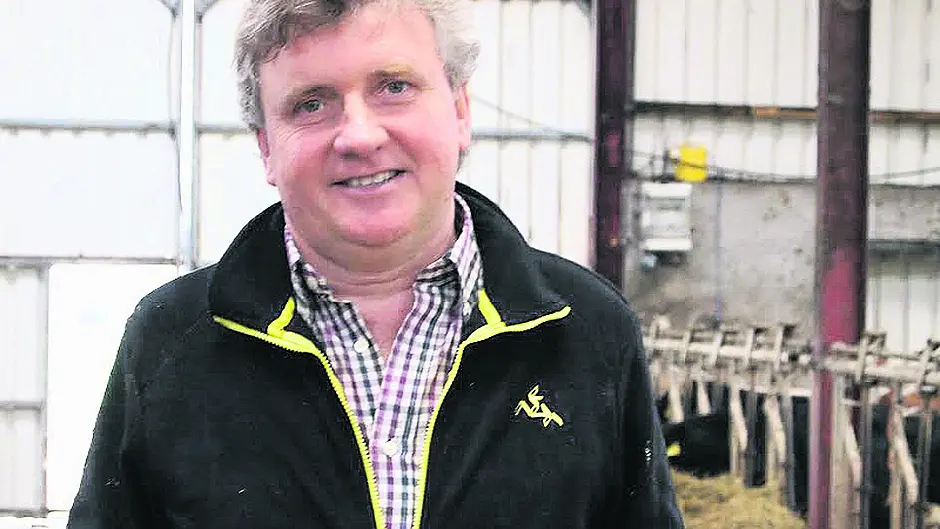Kieran O’Mahony meets Kilnamartyra dairy cattle breeder Brendan Hinchion
BRENDAN Hinchion may be a familiar face to many readers, because he is one of several farmers featured in UTV Ireland’s fly-on-the-wall documentary series, ‘Rare Breed: A Farming Year,’ which began its second series this week.
Brendan featured in the first series last year and, in the opening episode this week, the producers followed him heading to Tyrone to buy a second-hand milk parlour. It’s something that he has got used while running his busy farm in Kilnamartyra outside Macroom.
‘Breeding is a big part of what we do here and, as we sell bulls, it’s all good for business and the publicity won’t do us any harm,’ said Brendan who has a dairy herd of Norwegian Reds, Friesians and Jerseys.
Having always had an interest in farming, Brendan was attending Darrara Agricultural College when his father died, so at the young age of 19 he came home to run the 110-acre farm as it then was. Since he took over the family farm, he has expanded and he bought another 80 acres, as well as renting 130 acres nearby.
‘I have 130 cows but we breed bulls to sell to other farmers as well as replacement heifers and we have sheep too. Breeding would be the core of the business and our farm is ranked 19th out of 100 in the Economic Breeding Index (EBI), so those into breeding would know of us.’
Brendan even has a breeding website, which was set up by his friend Patrick McSweeney, which makes it easier for potential buyers to get all the information they need in advance of visiting a farm. By being able to simply click on the website they can then work out what bull is suitable for their needs.
‘All the information is drawn down from the Irish Cattle Breeding Federation (ICBF) website and each tag number of the bulls is available. Since we set up the website it has certainly fast racked the breeding process for both us and them.’
The abolition of the EU milk quota was something that Brendan was glad to see the back of.
‘I took over the farm in 1983 and the milk quotas came in the following year, so since then our hands were tied for years. But I’m delighted to see it gone and what it meant for me was that I added another 30 cows to my livestock. We can now get the full potential of the cows, whereas before we had to hold back.’
Brendan isn’t alone on the farm either, as he has the help of both French and Irish agricultural students at different stages throughout the year. The boom of the Celtic Tiger years meant that he had to look to France for students, but the connections he made with French colleges then have helped him.
‘The French students come to learn English as well as learning about the different ways of farming here in Ireland and it works out really well and they stay on the farm here too. I have also have arrangements with the Irish agricultural colleges too and some of their students come to work for me too.’
Working in tandem with Moorepark has also yielded benefits for Brendan and he grows monocultures for them and they measure it once a week: ‘They got us into breeding Norwegian Reds and asked me to take part in trials for crossbreeding with different breeds which were monitored by them.’
Brendan admits that the paperwork associated with farming can be a pain sometimes but he says that it’s the way with every industry at the moment but that markets abroad want traceability.
Farming is something that Brendan enjoys and he likes the diverse nature of it.
‘You need to be a jack of all trades in this business, as you need a business head and a technology head as well as out working on the farm. The job certainly brings something different every day and it’s always evolving.
‘The downside to farming would be the weather and climate change and the inspections are sometimes difficult, as it can be hard to have everything perfect when you are under pressure. I would still recommend a career in agriculture but you would really need to have a love for it.
‘If you’re lukewarm about it then you may need to think twice about it,’ added Brendan.








